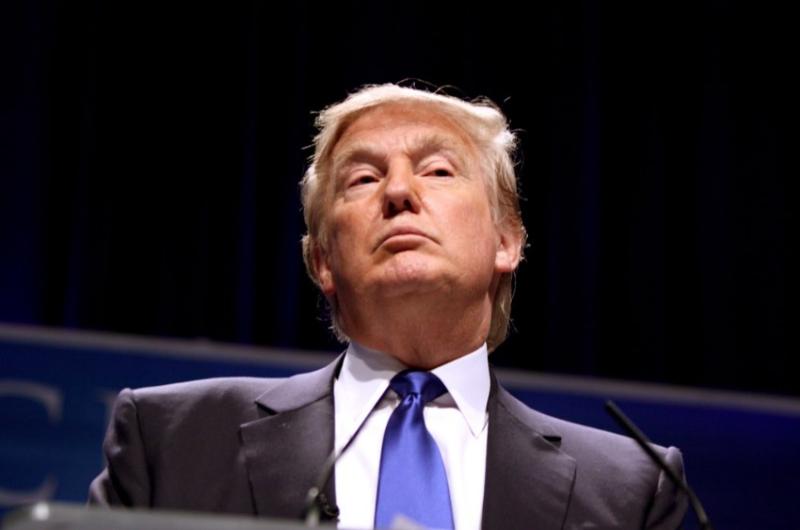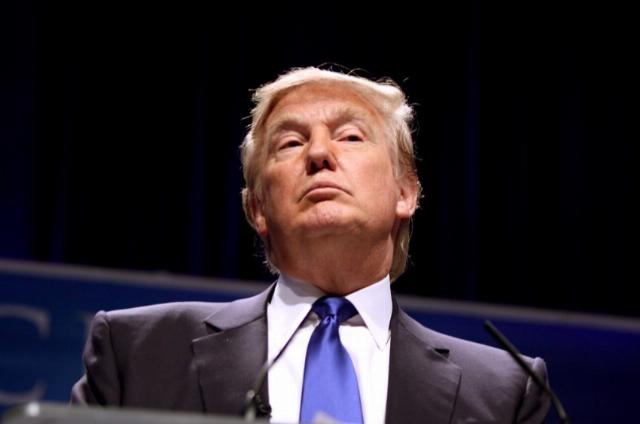


Political science widely holds that guaranteeing national security means trading freedom, or vice versa. Recent actions from President Donald Trump both defy and keep that dichotomy alive.
On August 21, President Trump mobilized the National Guard to crack down on skyrocketing crime in Washington, D.C. Now expanding to Chicago, liberals scorned the move, arguing that it neglects local authority, and likened it to a police state. One day later, the president also announced that the U.S. government had acquired a ten-percent stake in Intel to boost domestic semiconductor capabilities. Again, the announcement sounded off sirens that “uncomfortable” and “terrible” socialism had arrived in the United States.
The pundits and public fail to see the greater meaning behind these actions. In today’s age of anxiety and competition, law and order and a strong industrial base are prerequisites to enduring American freedom. “Peace through strength,” in our streets and businesses, is Trump’s version of deterrence and mustn’t be analyzed in a vacuum. Trump’s use of the National Guard achieves such a feat, but his Intel gamble could undermine his ambitions.
Democrats cheerlead the lie that D.C.’s crime is at a thirty-year low, but statistics prove otherwise. This July, the Council on Criminal Justice found that D.C. had the highest lethality level of crime compared to other major cities, with a 38% rise from 2018 to 2024. The number of juveniles in the Capitol, many with prior arrests, continues to rise year-over-year, with vehicle theft being over three times the national average. Although some crime rates appear to have flatlined or decreased, D.C.’s police force is under criminal investigation for manipulating these reports.
Trump’s bid to restabilize D.C. isn’t about robust policing and counter-crime measures; it details his presidency’s commitment to a well enforced legal system within which liberties can flourish. A 2016 Harvard Law Review study discovered that targeting policing on crime “hot spots,” repeat victims, and prolific offenders effectively makes communities safer. As crime is associated with citizens’ senses of belonging and autonomy, Trump is sending physical assurance to restore the social fabric that fuels mobility and purpose. D.C. Democrats failed to reform, so Trump is forming an environment in which people can exercise freedoms without fear.
But what liberties arise from crime prevention? Neighbors are more likely to civically gather and participate in events, build communal trust, and strengthen local institutions. Economically, lower crime areas are ripe for entrepreneurial development, saving massive amounts in spending, and boosting output and activity. As one review of John Braithwaite's Macrocriminology and Freedom puts it, “freedom is necessary to achieve a low-crime society, and crime prevention is essential to freedom.” The groundwork is currently being laid for improvement, as preliminary data showed a 17% drop in violent crime and one homicide in nearly two weeks. The people approve of Trump’s handling of backyard crime as a result.
The freedom and security dynamics in the government’s consensual and partial acquisition of Intel are more complex. Senators Rand Paul and Thom Tillis, alongside economist Stephen Moore, have warned that endorsing government ownership of companies contradicts the conservative values of private enterprise and free markets. The Trump camp views the deal with practical merit: It ensures American-owned critical chipmaking technology, lessens reliance on adversaries like China, and provides taxpayers with an equity return for their subsidies.
In 1975, the legendary economist Milton Friedman spoke on how “one of the great mistakes is to judge policies and programs by their intentions rather than their results.” The federal government rarely takes direct ownership in large businesses, last occurring in 2008–2009 with AGI, General Motors, and Chrysler. However, long-term state ownership yields chronic financial losses, bureaucratic inefficiency, and political interference in management decisions. Intention means little when government intervention distorts market competition and shields inefficient operations. Thus, economic security and freedom for all parties become unfeasible.
At the surface level, Intel is another company in need of aid. The company will axe 24,000 workers this year due to persistent manufacturing problems and a steep drop in market share to Apple and Nvidia. Intel’s financial and reputational decline was an opportunity for Trump’s administration to help it achieve strategic, political goals. Yet the stake signals an unprecedented, non-crisis-driven response and return to shaky industrial policy.
Economic freedom thrives when consumers and entrepreneurs, not unelected bureaucrats, decide how to use resources, set prices, and compete in markets. The Institute for Humane Studies notes that depending on the state discourages dissent and stifles the innovation that fosters national security and establishes technological leadership. In attempting to reinforce our resilience against foreign disruption or sabotage, Trump’s Intel stake risks economic sovereignty at home and supremacy abroad. That decision may cede the edge to more market-driven rivals in the long run.
If the administration aims to maintain the freedom-security paradigm, it should have extended a government contract to Intel. The deal would allow the government to fund the corporation’s R&D efforts without control, keeping Intel accountable to private shareholders and market forces. By designing a contract that includes strict scrutiny, sourcing, and specific manufacturing standards, the government can also avoid messy corporate governance, outlining clear deliverables and performance tied to national security objectives. The Trump administration pursued contracts with other tech giants like Micron Technology this year and should rely on this flexible option over gobbling up more stakes.
The Trumpian perspective is that national security, which includes physical safety from crime and economic-technological safety from instability, is a foundational precursor to true freedom. These recent actions signify that federal power, like local governance and free markets, is a harbinger of liberty and keeps threats at bay. Although the implications are mixed, it is a unique ideology for the conservative heavyweight to adopt that may complicate his policy goals going forward.
Alex Rosado is a political, cultural, and consumer freedom writer for Young Voices, writing in his personal capacity. Follow him on X @Alexprosado.

Image: Gage Skidmore via Flickr, CC BY-SA 2.0.
